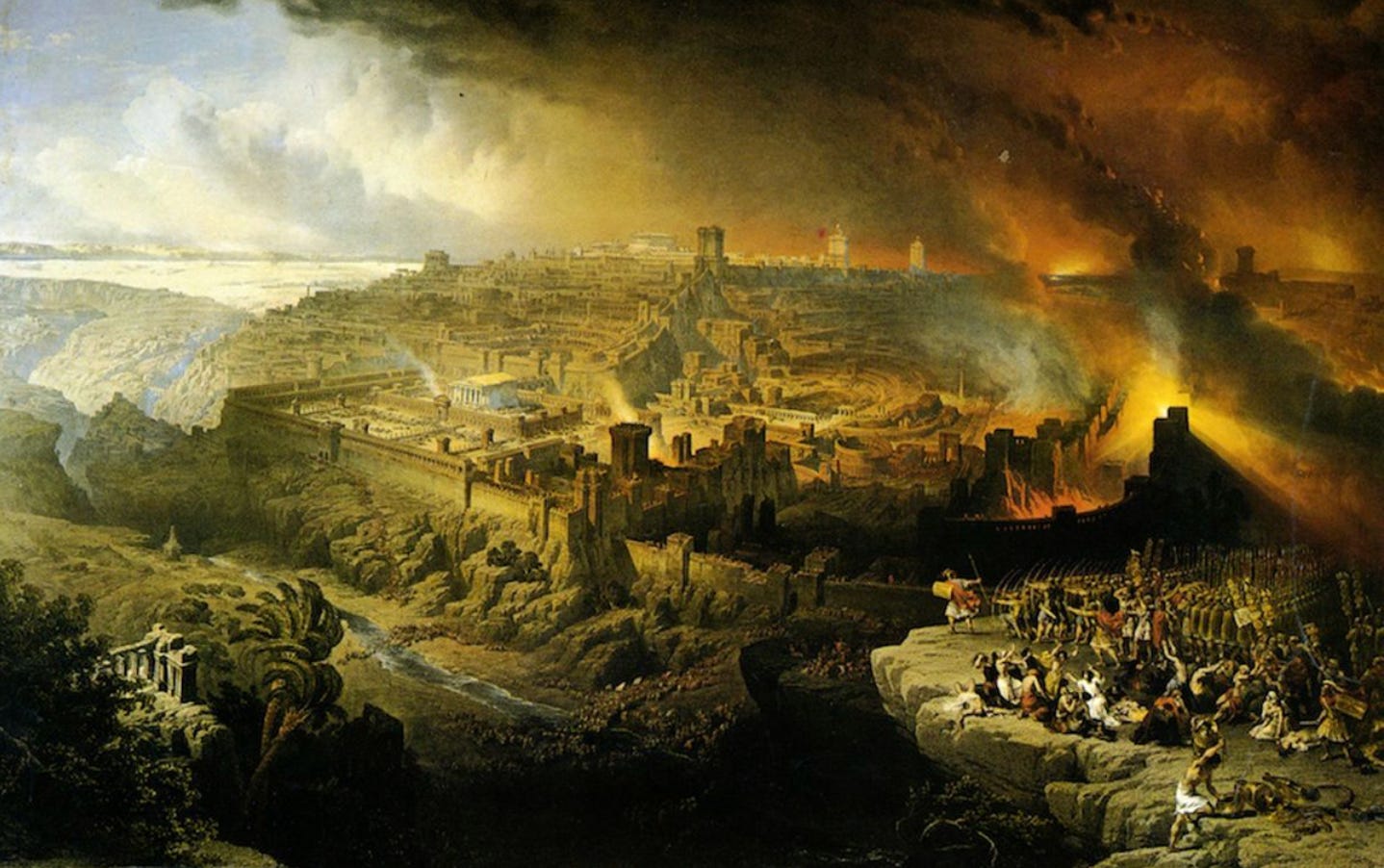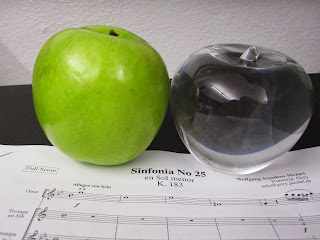So already, before I present to you a poem I wrote yesterday and revised this morning, a few pieces of information—and one apology.
The Jewish holiday of Tisha B’Av begins on Saturday evening, August 2 and extends through Sunday, August 3. These Gregorian 2025 calendar dates correspond to the ninth day of the Jewish month of Av 5785 and the evening before it. On 9 Av, the destruction of both Temples and a number of other terrible events in Jewish history occurred.*

Jews are supposed to fast and mourn on this day, which commemorates the loss of human lives, as well as of the places where Jews communally and individually conducted their religious and personal lives.
My nuclear family didn’t observe this holiday— I think we were often on summer vacation when it came around. I explored it more when I decided to become more intentionally and knowledgeably Jewish.
I still have an ambivalent relationship with this holiday, though intellectually I understand its purpose and its place in Jews’ atonement-centered spiritual preparation for the High Holy Days.
I may have to atone for writing this poem.
“Tanakh” is the Hebrew word (thank you, Google AI) for “the Hebrew Bible, . . . the foundational religious text of Judaism. The term "Tanakh" is an “acronym formed from the first Hebrew letters of its three main sections: Torah (תּוֹרָה, ‘Instruction’ or ‘Law’) . . ., Nevi'im (נְבִיאִים, ‘Prophets’) . . ., [and] Ketuvim (כְּתוּבִים, ‘Writings’) . . ..”
I am hoping that when I publish this post, the form of the poem will be preserved; if it’s not, I’ll put a comment to that effect below the post.
My apologies to those of you who receive email notifications of my posts: I’ve posted a lot during the month of July, more than I told you to expect I would.
So now that you’ve been briefed, warned, and apologized to, here’s my poem related to this year’s holiday of Tisha B’Av.

Tisha B’Av ‘25
In my shame,
I can’t grieve for
your destruction
this year.
All seems
artifice
despite your
eternal holiness
humbly upheld
prescribed
and guided
by Tanakh.
I believe
what I behold
in the news today,
though tragedy,
I’m told,
is propaganda
by which my eyes and heart,
I’m told,
are made fools.
What I see today
made rubble
are clinics
and tubes
that once carried
fluids and meds,
healing those
into whom
they flowed.
Hostages, I don’t forget you
or your loved ones
huddled in safe rooms.
But the buildings
I mourn this season
this year
are schools, houses,
and hospitals
in another city.
Forgive me.
* Screen shot of this painting—”The Siege and Destruction of Jerusalem by the Romans A.D. 70, David Roberts 1850 Collection of Yeshiva University Museum” accompanying the following article: Farber, Z. (2025). Tisha B’Av: On what day were the Jerusalem temples destroyed? The Torah—com, Academic Torah Institute. https://www.thetorah.com/article/tisha-b-av-on-what-day-were-the-jerusalem-temples-destroyed
** Screen shot of photo by Dawoud Abu Alkas accompanying the following article: Reuters. (2024, April 3). Many patients of destroyed Gaza hospital will die if not evacuated, WHO chief warns. Reuters. https://www.reuters.com/world/middle-east/many-patients-destroyed-gaza-hospital-will-die-if-not-evacuated-who-chief-warns-2024-04-03/





















